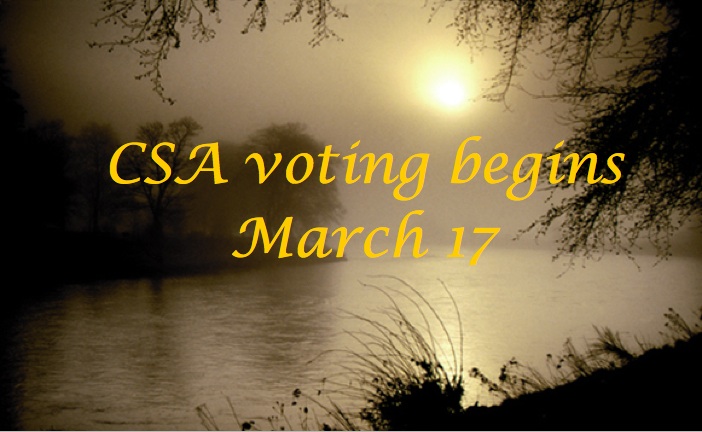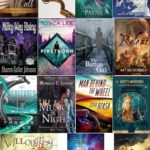Reaching Beyond Exclusive Readers
 Some readers admittedly consider themselves part of a niche. They love science fiction, for example, and science fiction alone. They devour online magazines that carry science fiction, buy up all the novels they can afford, watch whatever scifi shows up on TV, own the DVDs of all the great scifi movies, and bemoan the fact that there isn’t more they can get their hands on.
Some readers admittedly consider themselves part of a niche. They love science fiction, for example, and science fiction alone. They devour online magazines that carry science fiction, buy up all the novels they can afford, watch whatever scifi shows up on TV, own the DVDs of all the great scifi movies, and bemoan the fact that there isn’t more they can get their hands on.
I was never that kind of reader. As I’ve mentioned in other posts, my first great reading love was Walter Farley’s books about the Black Stallion and the horses he sired. Not long after, though, I dived into Nancy drew mysteries. My first “serious” reading was Pride and Prejudice, which led me to discover Little Women and others by Louisa May Alcott.
What do all those books have in common? Not much, other than the fact that I found them interesting, exciting, enjoyable.
 At some point, I discovered fantasy, either through Lord of the Rings or Narnia–I don’t recall which was first–and I did search for any and all books that seemed similar. Not exclusively, though. When Janette Oke published her first prairie romance, I read it and enjoyed it. Shortly afterward, a friend pointed me to a Randy Alcorn mystery, and I read and enjoyed that, too. When Frank Peretti’s supernatural suspense books came out, I happily devoured them as well.
At some point, I discovered fantasy, either through Lord of the Rings or Narnia–I don’t recall which was first–and I did search for any and all books that seemed similar. Not exclusively, though. When Janette Oke published her first prairie romance, I read it and enjoyed it. Shortly afterward, a friend pointed me to a Randy Alcorn mystery, and I read and enjoyed that, too. When Frank Peretti’s supernatural suspense books came out, I happily devoured them as well.
Despite the fact that I had discovered the early books in what has come to be known as Christian fiction, I continued to read Dick Francis novels or Tom Clancy. In other words, my reading tastes have been, and still are, eclectic.
When I went to my first writing conferences, then, I was at a loss to understand the idea instructors introduced that writers should target a particular audience. I was targeting readers like me who enjoy all kinds of stories. Not children. Not teens necessarily, though they might enjoy my stories. But readers. People who like mysteries or fantasy or space opera or adventure, even women who like women’s fiction.
But apparently readers is not an acceptable target audience. Apparently we, writers and readers, are supposed to segregate ourselves from genres other than our favorites.
Except, I consistently see in the blogosphere, others who say they like stories from a variety of categories.
How can we who want to see more Christian speculative fiction produced by traditional publishers, reach those readers? For that matter, how can self-published authors reach those readers?
 I’ve been thinking about that in connection to Speculative Faith and to the Clive Staples Award. With the latter, readers have nominated a couple middle grade books, some young adult novels, and some adult. So how can we get the attention of middle grade readers, not just middle grade readers who like fantasy? Or YA readers, not just YA readers who enjoy supernatural suspense?
I’ve been thinking about that in connection to Speculative Faith and to the Clive Staples Award. With the latter, readers have nominated a couple middle grade books, some young adult novels, and some adult. So how can we get the attention of middle grade readers, not just middle grade readers who like fantasy? Or YA readers, not just YA readers who enjoy supernatural suspense?
In other words, how can readers like me, the eclectic kind, find out about books we label “speculative”? Will regular readers stop by the Spec Faith library because they’re in the mood to read scifi, much the way someone might choose a Chinese restaurant because they’re in the mood for a little chow mein?
I’m asking these questions without answers. I know too many readers who would not consider themselves “fantasy people” who enjoy Narnia and The Hobbit, but who have never heard of The Chronicles of Prydain, let alone the Blood of Kings trilogy by Jill Williamson or The Guardian-King series by Karen Hancock.
I know there are fans of Melanie Dickerson’s Christian fairytale fantasies, for example, who don’t know there’s a Clive Staples Award where they could nominate her books. Why? Because we have no way of reaching them.
And the thing is, should they discover their favorite author on a list of books nominated for the same award, might they not find out that a novel like King by R. J. Larson or Dragonwitch by Anne Elisabeth Stengl or Son of Truth by Morgan Busse, is similar?
How do we bridge the gap between readers and books waiting to be read? How do we spread the word, not about a single title, but about a genre to non-genre-identifying readers? Because I have to believe there are far more readers who just love good stories than there are readers who isolate their reading to one particular category.
I’m part of a couple Facebook groups for Christian speculative fiction, and I wonder how helpful those are. Would it be wiser to join regular reading groups instead? How can we reach beyond the borders of readers who identify as fans of speculative literature? Is there something we’re missing?









































Chronicles of Prydian! My dad introduced me to those, I was a little older than the target audience, but I loved them anyway. His Remarkable Journey of Prince Jen, a story set in ancient China is also fantastic.
I recently read Lamb’s Rise of the Machines, on marketing via social media. Her advice is to blog, first of all. But tap into high concept. That’s any idea with a lot of shared mental real estate among people–cats, laundry, exercise, deaths in the family, love, friendships, etc. SpecFaith used to have a lot of that kind of content, but lately it’s become very myopic. The Bible, stuff about the Bible, narrow views of one fiction genre, ten authors, and Harry Potter. No more high concept topics. I confess my attention has wandered.
I wish I could tune into Spec Faith and get commentary on recent cultural things. Is the Lego Movie really anti Christian, as some people are hysterically screaming? How should a Christian approach a book like Daughter of Smoke and Bone, which is a romance between an angel and a demon? Is it more heretical than Moonblood, where the unicorns seek forgiveness from the moon goddess?
What new books are coming out, not just in the Christian arena, but the secular arena? Can you possibly endorse Dream Thieves by Stiefvater even though there’s astrology and drug abuse and, for heaven’s sake, CUSS WORDS??
I’d just like a little more high concept/relevance, please.
I second that emotion Kessie. It’s not so much a criticism of the content in and of itself, but the limitation of the subject matter. I think, currently, everything’s very important: I’d like a little more wimsy. However, I understand part of the difficulty is that several of the main writers have ended their regular updates, and Becky and Stephen are having to fill in the gaps. I know they both probably would like more variety, and I hope someone comes along to fill the Fred Warren-sized hole we have around here.
Sounds like you’re requesting, in part, expanded reviews of “secular” stuff. 😀
For my part, I can confirm that no, The Lego Movie is not anti-Christian. (And I also confess I’ve not seen claims to the effect that it is; perhaps I simply hang out with more-informed Christians?) If anything, the film pulled a stunning fast-one with a story supporting not only a good creator’s rights over creation, but condemnation of the kind of conformity that’s unique to technocrats-acting-like-mega-corporations.
Kevin Newsome broke down the Lego Movie in all of it’s subversiveness (and I disagree with just about all his points, but there’s no point in arguing, is there?)
http://kevennewsome.com/2014/02/25/the-lego-movie-one-of-the-most-anti-christian-movies-ever/
(Squints)
Yes, on this one I’m afraid I would need to disagree with my brother Kevin. Even MovieGuide gave props to The Lego Movie, besides that small incident of its reviewer behaving like a Republican convention delegate trying to clap to hip-hop and loudly asking, “Why did they call the villain President Business? It would have been more clear if the filmmakers hadn’t given such a misdirecting name!” Sigh …
The problem I see is that Christian fandom has two types.
1. The Christian speculative fiction geek
2. The Christian speculative fiction geek.
There seems to be a lot more of the former than the latter. I think Rebecca’s point is more how (or even if) we make number 1 also number 2. I worry sometimes that for all the effort, no one really cares about number 2; they just want a christian gloss on secular stuff. People would rather buy “The Theology of Doctor Who” than an actual Christian SF book, regardless of quality.
I think you’ve nailed it dm. I’m looking for Christian Speculative Fiction. I have no interest in reading heathen fiction any more. The world has gotten too rough, evil books are commonplace, and I want entertainment that builds me up (or at least helps me remember who I am). And then there’s the increasingly important task of getting ready for the Coming King.
Which is why SpecFaith hopes to reach both kinds of readers. The SpecFaith Library lists only speculative novels marketed as Christian speculative in nature. The SpecFaith reviews offer Christians evaluations of novels that are both “secular” and marketed as Christian.
Just my two cents on Moonblood–it’s made fairly clear within the book that the “moon goddess” is subordinate to the Creator.
Also, props for the Halo image. I love those games! But is an M rated game appropriate for this site? The bad aliens are religious nut jobs waging a holy war on humans!
I’m somewhat like you, Rebecca. I’m a compulsive reader, I guess. When I was young I read it for escape from the pain of junior and senior high school. Later I read for insight into different societies and especially for original thought. But at 2-5 books a week, nothing lasts except romance, and I don’t like mushy romances though I love and expect a good male/female relationship in all I read. I’m not sure that 300 books a year are even released of the type I love.
Lately I’m back into fantasy again after a 35 year hiatus, because it’s the only place I can find exciting books with an occasional Christian world view. But then, as you mention, those are very hard to find. In the past three/four months I’ve found more than a dozen books and trilogies (which currently barely make up one decent book).
As I long for the days of explosive Christian power I experienced when I came to the Lord in the mid-70s, I long for the days of life-changing books: Gone With the Wind, Stranger In A Strange Land, Ringworld, the Azimov set, Dune, Hobbit, LOTR, McCauffrey, LeGuin, and many others. I guess I’m too old to even expect that anymore. Plus, the heathen books have gotten grotesquely evil over the past couple decades. I left sci fi and then fantasy in the late sixties because of the focus on free sex with anyone, any gender, or any thing. But with the spirit of lawlessness set loose on the land, all heathen books are quickly heading that direction. 50 Shades of Gray, give me a break, that one’s clearly dark black.
But I read and review and share and so on. All I can do is share who I am, right? CBD has abdicated, and there’s no one else nearly large enough to do anything that I know of. Maybe Laube can get something going, but so far his vision seems a bit insular.
Maybe it would help to write reviews praising a book not as “a twist of traditional fantasy” or “a fresh voice in supernatural thrillers” but praising the story. The characters. Not the genres.
Maybe also the responsibility shouldn’t fall entirely on authors and folks who want to spread the word. I read like you, Becky: anything good I can get my hands on. To find books like that, I look all kinds of places: bookstore and library shelves (which is how I found The Mirror’s Tale), review blogs, author blogs, books with lists of books for age groups, and occasionally, I type in the title of a book on Amazon and then browse their “more like this” section. Maybe those multi-genre readers have a responsibility to look for what they want.
Lastly, I have to agree with Kessie. In addition to the topics circulating here, I would love to read articles about Lord of the Rings, the new Ender’s Game film, suggestions why one spec novel works while a similar one doesn’t, why some books have wider reader appeal than others, whether romance detracts or adds to stories, maybe trends of how often character development occurs in male-authored works as opposed to female-authored works (took samples recently–there is a difference!!), what time periods seem popular for fantasy cultures and lists of books that differ from this trend, maybe articles about the hard times of authors and how they pulled through, if genre labels hinder marketing rather than help it…
Blessings,
Literaturelady
I think one thing Christian spec fic authors can do is just write excellent stories. Learn the craft before attempting to publish a book. Study the greats, secular and Christian. Being an avid reader is good, but writers also have to know how to write! Quality stories will draw people from all genres.
I really like those topic suggestions, Literaturelady.